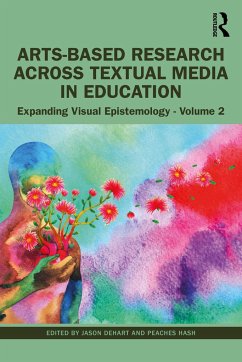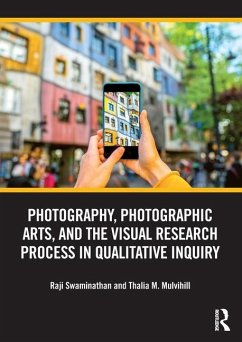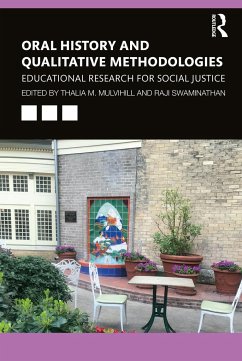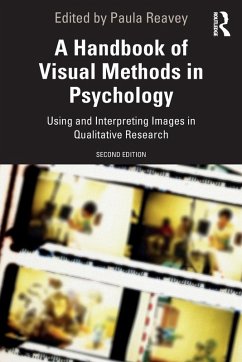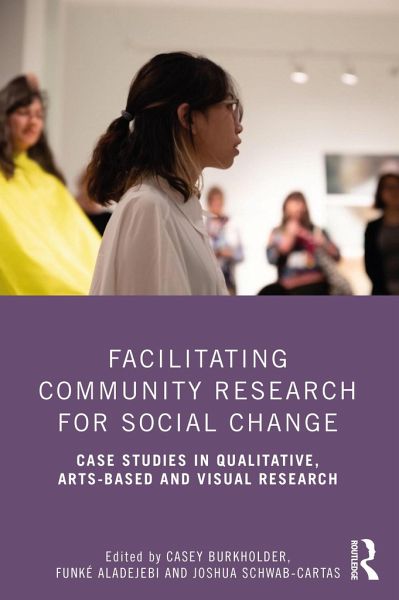
Facilitating Community Research for Social Change
Case Studies in Qualitative, Arts-Based and Visual Research
Herausgegeben: Burkholder, Casey; Aladejebi, Funké; Schwab-Cartas, Joshua
Versandkostenfrei!
Versandfertig in 6-10 Tagen
50,99 €
inkl. MwSt.
Weitere Ausgaben:

PAYBACK Punkte
25 °P sammeln!
Facilitating Community Research for Social Change asks: what does ethical research facilitation look like in projects that seek to move toward social change? How can scholars weave political and social justice through multiple levels of the research process?This edited collection presents chapters that investigate research facilitation in ways that specifically attempt to disrupt and challenge anti-Indigenous and anti-Black racism, ableism, homophobia, transphobia, patriarchy, and sexism to work toward social change. It also explores what it means to develop facilitation practices across multi...
Facilitating Community Research for Social Change asks: what does ethical research facilitation look like in projects that seek to move toward social change? How can scholars weave political and social justice through multiple levels of the research process?
This edited collection presents chapters that investigate research facilitation in ways that specifically attempt to disrupt and challenge anti-Indigenous and anti-Black racism, ableism, homophobia, transphobia, patriarchy, and sexism to work toward social change. It also explores what it means to develop facilitation practices across multiple contexts and research settings, including specific facilitation methods considered by researchers working with visual and community-based methods with Black, Indigenous, and racialized communities. The complexities of how scholars negotiate decisions within their research with people and communities have an effect not only on how researchers construct their participants and communities, but also on the overall purpose of projects, the ways their projects are shared and disseminated, and what is learned in the doing of facilitation.
This book will be of great interest to both emerging and established researchers working within the social sciences. It specifically attends to diverse fields within the social sciences that include health, media studies, environmental studies, social work, sociology, education, participatory visual research methodologies, as well as the evolving field of digital humanities.
This edited collection presents chapters that investigate research facilitation in ways that specifically attempt to disrupt and challenge anti-Indigenous and anti-Black racism, ableism, homophobia, transphobia, patriarchy, and sexism to work toward social change. It also explores what it means to develop facilitation practices across multiple contexts and research settings, including specific facilitation methods considered by researchers working with visual and community-based methods with Black, Indigenous, and racialized communities. The complexities of how scholars negotiate decisions within their research with people and communities have an effect not only on how researchers construct their participants and communities, but also on the overall purpose of projects, the ways their projects are shared and disseminated, and what is learned in the doing of facilitation.
This book will be of great interest to both emerging and established researchers working within the social sciences. It specifically attends to diverse fields within the social sciences that include health, media studies, environmental studies, social work, sociology, education, participatory visual research methodologies, as well as the evolving field of digital humanities.







